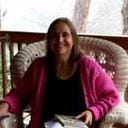Review of Crazy Brave: A Memoir, by Joy Harjo
Joy Harjo is the current poet laureate of the United States, the first Native American to hold that position. I bought this book because I wanted to learn more about her.
Harjo is almost the same age as me, which made me like her immediately. However, our life experiences couldn’t be more different.
Harjo starts her memoir with the story of her parents and ends with her young adulthood. Her writing style is musical-even her prose is poetic. The poems included in the book reflect her native culture, which is woven throughout.
As a child, Joy was a good student, an artist who loved poetry, photography, and music.
Harjo’s parents divorced, and her mother married an older white man who physically and emotionally abused her and Joy and Joy’s sister and brothers.
Her stepfather wanted Joy gone, so he suggested sending her to a fundamentalist Christian school. Joy asked instead to be sent to an Indian boarding school, so she would have classmates who looked like her. The family applied through the Bureau of Indian Affairs and she was sent to the Institute of American Indian Arts in Santa Fe. She studied art and theater in addition to her academic subjects. When she graduated from the high school program, she was pregnant. The baby’s father promised to send her money to join him, but he didn’t.
Joy borrowed bus money from her brother to travel to her baby daddy’s home. They married, but the marriage didn’t last.
With tribal assistance, Harjo entered the University of New Mexico in a premed program. After one semester, she changed her major to studio art. She met a student who wrote poetry. Joy had always loved poetry; she had loved to recite it as a child. She thought poetry had to be in English. This young man wrote poetry about his tribe and his pueblo and his people and their ideals. He changed the way Harjo thought about poetry. She fell in love with the student, and he beat her. She bore him a daughter and named her Rainy Dawn. He was an alcoholic, and she eventually left him. The book ends shortly thereafter, with Harjo pursuing poetry.
This is an excellent book for a white person to read, especially one whose experience with Native Americans is as non-existent as mine. It’s eye-opening.
Originally published at http://arhtisticlicense.com on March 21, 2020.
